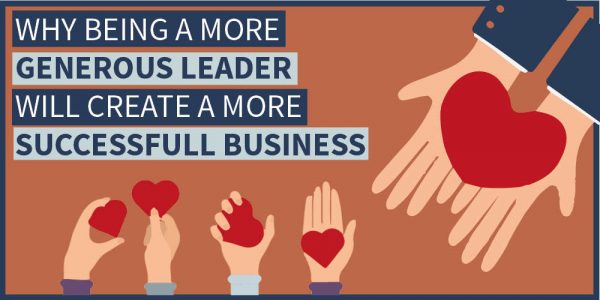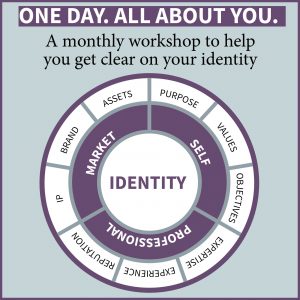Generosity from leaders makes business better in all aspects, yet few businesses have discovered the benefits for their business generated by being generous of spirit.
This is not surprising as many of us in the Western world have never discovered the joy of giving freely, and as a result, we can find ourselves trapped into the thinking that we never have enough despite being in the top quartile of people living in the 5th richest nation on earth. If only more of us could discover the fulfilment that comes through giving away to those less well off than ourselves.
Before we get started, I did a Fireside Chat on this topic. There is a clip of this down below.
On a personal level I first experienced this in my early twenties when living in London as a charity worker. I was given a significant amount of money and asked to buy Christmas turkeys for some of the less fortunate families in my local community in London. It was such a privilege to see the joy that another’s generosity brought to several poor families in Deptford that it brought me to tears that Christmas Eve. As one wise person once said, “It is indeed better to give away than receive.” We know this from our own experience of giving gifts to our loved ones, don’t we?
I transitioned into the business world after ten years in the charitable sector and still wanted to make a difference to people’s lives through the embryonic business. We employed an alcoholic, an ex-drug addict and another guy just released from prison amongst our first employees. Too much too soon from hindsight, but several years later, and having fallen away from that initial purpose due to the inevitable pressures of a start-up, I brought the spirit of generosity back into the business and have never looked back.
In 2011 my daughter and I visited an orphanage and school in one of the poorest parts of Western Kenya, which was a profoundly moving experience. After arriving back in the UK and sharing the experience with others back in the office one of my part-time workers decided to do something about it and offered, in her own time, to organise our first charity ball, which of course, involved many others in the company too. It was a successful event and raised £25k – enough for us to start a farm in Kenya in order to generate some of their own funds more sustainably. In total we have raised and given away £250k over the years.
The lesson learned here for me was the new dynamic that investing time and money in a cause outside the business brought into the business itself. Our team of around 35 at the time had a new reason to come to work, felt good about what they were part of and freely gave of their own time and money to those less fortunate than themselves. A new energy came into the company and we were part of a better business and grew faster than ever in the subsequent years.
People generally come to work to make a difference to the world in some way or another and it has never been a great motivation for workers to feel that their main purpose in coming to work is to make the shareholders and CEOs more wealthy than they already are! How motivated do the workers at Tesco and Sainsbury’s feel at midday on 2nd January knowing their CEOs have earned more than they will earn in the whole year?
Coming to work for a greater purpose than making the rich richer generates far more motivation for the workers and so does knowing that they are working for leaders who primarily have their people’s interests at heart and not their own. As well as being a servant leader a successful leader is also about generosity with finance: plenty of holiday, bonuses, and pay. When companies and those that lead them act generously towards their employees, they will always receive back in spades. Most human beings will give back generously in time and other ways if they are shown it by their leaders; it’s contagious, just like kindness.
Unlike in some Eastern cultures, in today’s Western culture many don’t believe that when we give generously, we receive it back with abundance. Many of us often find it difficult to let go and give without putting ourselves first. Why is this? Many reasons: our upbringing, complying to cultural norms and sometimes psychological factors. It can be difficult to not have a fear of being generous when we have come from a family where every penny counted, or our fathers drank or gambled away the family income. Many entrepreneurs from humble backgrounds were motivated enough to work their way out of a cycle of poverty, but if they bring the fear of being without into their business culture they may be in trouble.
Unless we break the cultural myth that excessive riches make one happy, we will always see generosity as transactional: giving something in order to receive back at some point in the future. The power of being generous is lost this way; generosity shouldn’t be about internally calculating how you might get your money or time back, or whether the other person deserves it. Hindu tradition talks about abundance – a state of living that gives no thought to how giving might leave ourselves short. In this tradition, it is said that people who spend their time worrying about self-preservation and never being generous will never experience the rewards of giving freely. Some of us may know very wealthy people beset with worry about losing what they have. If people are stuck in this cycle of worry, they might need some extra help to allow them to experience the true happiness that comes from being generous.
Whilst I am still learning to be generous, we have found that the more we give away to others as a company the more rapidly our revenues and profits increase. Generosity spreads through the business to our customers, our people and our suppliers who can sense that and want to do more business with us. We simply need more business leaders to understand this at a deeper level and business really would start to make a more positive impact on the world.
Last month we opened a foodhall and restaurant in the Bristol area and because we are better at communicating the heart of our business out to the world than we used to be, we have ended up with a fantastic new team of 35 new people, who completely understand the values of our business. I don’t know all their individual stories, but several were treated appallingly at their former employment. One left after 11 years and never had any of the leaders say anything to her on her last day, let alone gave her a leaving gift. Another with clear potential was paid wages below the poverty line, so that before his first payday with us he had run out of money for his bus fare and was walking miles to work. I found this out last Friday, but before I could do anything, I heard that the head butcher had given him a bike. The generosity within our business manifested in an action that made someone’s week.
Would you not rather leave a legacy in other people’s lives through your generosity, rather than stacking up cash and possessions to be left behind after you die? I attended a funeral of a very generous man a few years ago, one of our company’s suppliers. The event was incredible, and you could see the impact this wonderful man had had on others, in all aspects of his life, business, community and family. Everyone was given the opportunity to speak about his generosity, and if more businesspeople lived their lives like him, the world would be a very different place.
Let’s learn to be more generous in our businesses and lives.
ABOUT THE AUTHOR
Paul Hargreaves is the Founder and Chief Executive of Cotswold Fayre Ltd, a speciality & Fine food wholesaler that supplies nearly 2,000 retail outlets throughout the UK. A renowned figure within the speciality food world for his insightful views and business mindset, Cotswold Fayre grew from the cellar of his house in London to the leading wholesaler to farm shops and delicatessens around the UK.
As a leading voice in the UK that encourages and inspires businesses to create impactful change and be a ‘Force for Good’, Paul is often booked as a speaker. By helping others change their way of work and to consider the impact of decisions made so that the business can help reduce poverty, injustice and environmental damage by balancing purpose with profit, all whilst becoming a more successful business that helps make the world a better place, Paul leaves his audiences feeling fulfilled and helps fuel their drive as entrepreneurs and business people.




